The Natural, 1984
It seems as though Newman's work has become very recognizable since the Pixar years, but this early scoring effort for the Robert Redford-starring baseball classic is surprisingly devoid of any typical Newman tropes. With that instantly recognizable horn line (it's been used so many times since in homages you often forget it originally came from this movie), it signifies what is clearly an inspiration flick - and it helps that this one happens to be a supremely well-made one. Newman's traditional use of brass front and center is made obvious here more than ever. As far as comparisons, there's nothing else in his filmography that really sounds the same - although I here a tinge of A Bug's Life in there on occasion. [Link]
Awakenings, 1990
Though the film would end up nominated for three Oscars, including Best Picture, Awakenings didn't result in a nod for composer Newman. The score is surprisingly delicate for Newman's tastes though. The bombast of future Toy Story intros is nowhere in sight. I mean, the film is also a rather delicate one, following the sudden "awakening" of dozens of catatonic patients making up for lost time. The best sampling from the soundtrack (linked below), entitled "Dexter's Tune," is a basic piano melody that perfectly exemplifies the mood of what's happening on-screen. It may be one of his lesser known works, but this score is very lovely. [Link]
Toy Story, 1995
Arguably Newman's biggest and most noted contribution to movie scores has got to be Toy Story. From those first now-iconic bars (since used as the official Pixar musical intro) to the entire overture that ensues entitled "Andy's Birthday," he's outdone himself in terms of creativity. And when you're scoring the first full-length computer-animated film, there are high expectations for the visual and aural elements at play. The brass and woodwinds (namely the clarinet that would seemingly become Newman's go-to fave among the orchestra in later years) are dealt loads of frantic melodies throughout the duration, and the themes are so brilliantly orchestrated, there need not be an accompanying image to elicit an emotion from the listener. Truly one of the all-time great soundtracks. [Link]
Pleasantville, 1998
One of the great forgotten and shamelessly unappreciated spectacles of the 1990s, Pleasantville boasted a truly unique premise bolstered by stellar performances from its cast, incredible costumes, and an in-your-face message. And to top it off, Randy Newman's work on the music is a brilliant addition to the magic at play. Utilizing piano and strings much more than usual, Newman discovers the need for flutes and clarinets in a film with so many message moments. The whole soundtrack is a light but moving piece of work, and I hesitate to say that there is no other Newman work that really compares to the themes and orchestrations that are presented in Pleasantville. [Link]
A Bug's Life, 1998
The clarinet that would later be heavily used on his score for Seabiscuit makes its first major appearance in the themes to the second Pixar outing A Bug's Life. While it's often forgotten amongst the bigger-name classics in the Pixar canon, a repeat viewing will remind you that A Bug's Life is beautiful to look at, boasts a stellar screenplay, and ranks up there just as equally with more lauded studio productions. Though Newman's score for this film is hardly as memorable as Toy Story's, there is some great adventure/journey music produced here. Sounding on its face a lot like the soundtrack to a spaghetti western, the adventures of an ant named Flik are rendered far more thrilling thanks to Newman's work. [Link]
Toy Story 2, 1999
It's no easy task to take a pre-existing (and highly recognizable) movie score and adapt it for a sequel without losing the feel of the original while creating something new (Howard Shore managed it for The Lord of the Rings, and John Williams pulled it out for Harry Potter and the Prisoner of Azkaban.), but Newman does just that with Toy Story 2. Sure, the original themes that made Toy Story's score so delightful are ever-present throughout this sequel, but the new themes added to the mix are so essential to the trilogy's history this score is at times outdoing the original. My favorite track, "The Cleaner," has the look and feel of Pixar without immediately feeling like a regurgitation. [Link]
Monsters, Inc., 2001
It should be nothing new to any frequent reader of this blog to hear that I find Monsters Inc. to be one of the most under-appreciated greats of recent years (thanks a lot Shrek). The score that Randy Newman crafted for the flick is very very different from earlier Pixar incarnations. Throwing in some jazz piano and heavy use of various saxophones, and sampling his Oscar-winning song "If I Didn't Have You," it's a truly original work. Newman has never been this much fun (except for maybe on Political Science), and its evident in the jaunty jazz combo that provides the orchestrations for this ridiculously original movie. [Link]
Seabiscuit, 2003
One of Newman's mellower scores, Seabiscuit doesn't live up to The Natural as far as sports movie music goes, but it utilizes what Randy does best. Sure, the brass lines sometimes harken to often to his work on A Bug's Life, and that main clarinet tune is used frequently, but there is something to be said for the coherency of this soundtrack. The story certainly lacks, which obviously doesn't help Newman create an ambience with his score, but overall its no mar to the composer's filmography. The racing music can get a little been there done that, but the more solemn moments provide some great elegies. [Link]
Cars, 2006
Quite clearly the weakest effort of the Pixar crew (though just barely managing to walk away without being deemed an actual failure), Cars is a bit misguided, but eventually is worth it for the visuals at the very least. (Why the studio's risking their first-ever critical drubbing by sequelizing this out of a wealth of better options is beyond me.) So, Newman's task is a bit more difficult considering the film isn't an ace in the hole. But his work here signifies transcendence of the story itself. Sure, there's a lot of bombast in the earlier portions of the score (and the docile moments don't have the poignancy of The Natural or Toy Story because of the unlikable characters), but the soundtrack exceeds the movie, so it can't be considered a loss for the composer. [Link]
The Princess and the Frog, 2009
Though the real greatness at play with this soundtrack is the excellent song score (has there been a Disney one this great since The Lion King?), Newman's accompanying score perfectly encapsulates the Cajun spirit in The Princess and the Frog. I think at times the music dips a little bit too much into familiar territory, but he mercifully stays true to the southern spirit, particularly in his opening theme music. The movie wasn't a behemoth at the box office, which causes the unfortunate side effect of not enough people adding this music to their soundtrack playlists. Though Newman is no longer Pixar's go-to composer, Disney is smart to keep him around, as evidenced by the pitch-perfect soundtrack here. [Link]
Toy Story 3, 2010
Even though the film itself is utter brilliance, the score doesn't quite measure up to the bar set by Toy Story 2. The soundtrack is still fun, and the Oscar-nominated track "We Belong Together" is a great addition the Pixar lyrical pieces, but there isn't enough originality at play in this outing. The highlight, though, is easily the closing music. "So Long" works quite well on its own at rendering the listener a blubbering mess. In addition, his "Ken's Theme" and "Spanish Buzz" tracks are practically separate from the rest of the soundtrack but at least keep the emotion in check with some more traditional laughter sequences. [Link]



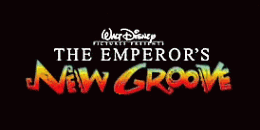
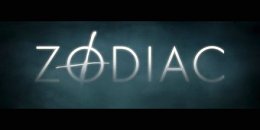
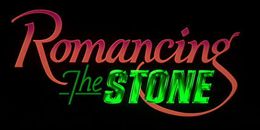



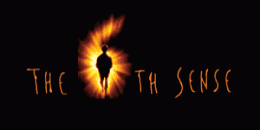















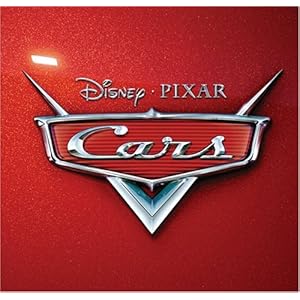



























No comments:
Post a Comment